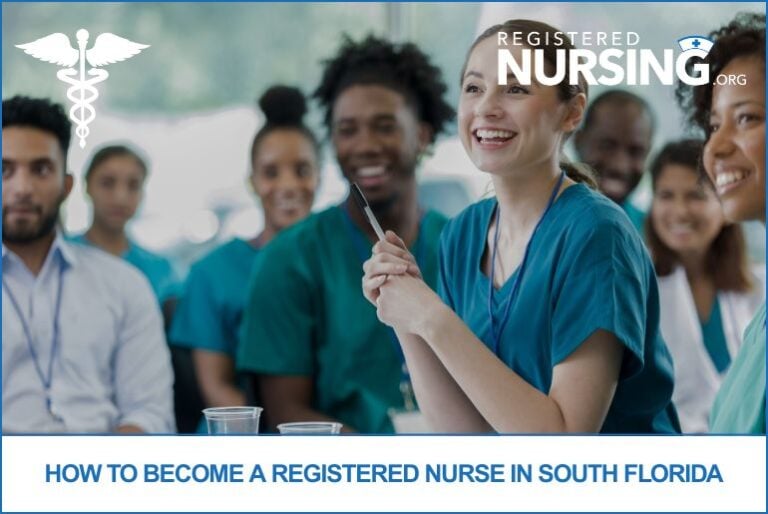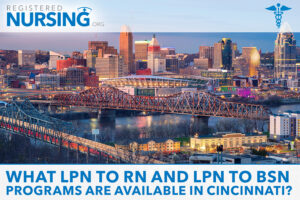How to Become a Registered Nurse in South Florida
- Educational Pathways to RN Licensure
- Steps to Becoming an RN in South Florida
- Top Nursing Programs in South Florida
- Licensing Requirements and the NCLEX-RN
- Career Opportunities and Advancement
- Continuing Education and License Renewal
- Prepare for a Successful Nursing Career in South Florida
- Sources
- Latest Articles & Guides

South Florida is experiencing a growing demand for qualified registered nurses (RNs), driven by its expanding population and diverse healthcare needs. With a 7.8% nursing vacancy rate statewide—equating to over 16,000 unfilled positions—opportunities abound for aspiring nurses in the region (Axios). Whether you’re starting fresh or transitioning careers, understanding the steps to become an RN in South Florida is crucial. This comprehensive guide will walk you through the educational pathways, licensure requirements, and career prospects to help you make informed decisions on your nursing journey.
Educational Pathways to RN Licensure
To become a registered nurse in South Florida, you must complete an approved nursing education program. The two primary pathways are:
Associate Degree in Nursing (ADN)
- Duration: Typically 18–24 months.
- Offered by: Community colleges and some private institutions.
- Outcome: Prepares graduates for entry-level nursing positions and eligibility to take the NCLEX-RN exam.
Bachelor of Science in Nursing (BSN)
- Duration: Approximately 4 years.
- Offered by: Universities and colleges.
- Outcome: Provides comprehensive nursing education, opening doors to advanced roles and further studies.
Choosing between an ADN and a BSN depends on your career goals, time commitment, and financial considerations. BSN programs often offer broader opportunities for advancement and specialization.
Steps to Becoming an RN in South Florida
Embarking on a nursing career in South Florida involves a series of important steps designed to ensure that you’re fully prepared for the responsibilities of professional nursing. From meeting educational requirements to obtaining state licensure, each phase builds the foundation for a safe, competent, and fulfilling practice.
1. Complete Prerequisites
The journey starts with a high school diploma or GED. Most nursing programs—whether ADN or BSN—require completion of prerequisite coursework. These typically include anatomy and physiology, microbiology, chemistry, English composition, and college-level math. Achieving strong grades in these subjects can improve your competitiveness during the application process and better prepare you for rigorous nursing curricula.
2. Enroll in an Accredited Nursing Program
Select a nursing program that is both accredited (by bodies such as the ACEN or CCNE) and approved by the Florida Board of Nursing. Accreditation ensures the program adheres to national education standards, which is crucial for eligibility to sit for the NCLEX-RN and for future educational opportunities like RN to BSN or MSN programs. South Florida offers a range of program formats, from in-person to hybrid, to fit different lifestyles and learning preferences.
3. Graduate from the Nursing Program
Graduating requires successful completion of didactic coursework, skills labs, and clinical rotations. Clinicals are often held in hospitals, clinics, and long-term care facilities, providing essential real-world experience. During this time, you’ll practice communication, patient care, medication administration, and other core competencies under supervision.
4. Pass the NCLEX-RN Exam
After completing your nursing program, you’ll apply for and take the NCLEX-RN. This computerized exam evaluates whether you’re prepared to begin practicing as an entry-level RN. It tests critical thinking, nursing knowledge, and decision-making in patient care scenarios. Most candidates take the exam within a few months of graduation, and many programs offer NCLEX preparation resources.
5. Apply for RN Licensure in Florida
Once you’ve passed the NCLEX-RN, you can apply for licensure through the Florida Board of Nursing. You’ll need to submit your official transcripts, background check results, and NCLEX scores. The application process can be completed online. Once your materials are verified and approved, you’ll be issued your RN license, officially authorizing you to practice in the state.
Pursuing licensure in South Florida not only opens doors to a wide range of healthcare settings but also gives you access to one of the nation's most diverse patient populations—offering rich professional and cultural experiences throughout your career.
Top Nursing Programs in South Florida
Several institutions in South Florida offer reputable nursing programs:
| Institution | Location | Program Type | Accreditation | NCLEX-RN Pass Rate |
| South Florida State College | Avon Park | ADN | ACEN | Data not specified |
| Broward College | Fort Lauderdale | ADN | ACEN | Data not specified |
| University of Miami | Coral Gables | BSN | CCNE | Data not specified |
| Florida International University | Miami | BSN | CCNE | Data not specified |
| South Florida College of Nursing | Margate | ASN | ACEN | Data not specified |
Note: NCLEX-RN pass rates can vary annually. It’s advisable to consult the Florida Board of Nursing for the most recent statistics.
Licensing Requirements and the NCLEX-RN
To practice as an RN in Florida, you must:
- Graduate from an approved nursing program: Ensure your program is recognized by the Florida Board of Nursing.
- Pass the NCLEX-RN exam: This standardized test assesses your readiness to practice safely and effectively.
- Submit a licensure application: Provide necessary documentation, including transcripts and exam results, to the Florida Board of Nursing.
For detailed information on the licensure process, visit the Florida Board of Nursing’s licensing page.
Career Opportunities and Advancement
South Florida offers diverse employment opportunities for RNs, including:
- Hospitals and Medical Centers: Such as Jackson Memorial Hospital and Baptist Health South Florida.
- Community Health Clinics: Providing care to underserved populations.
- Home Health Agencies: Offering in-home patient care.
- Long-Term Care Facilities: Caring for the elderly and chronically ill.
RNs can further their careers by pursuing advanced degrees, such as a Master of Science in Nursing (MSN), or specializing in areas like pediatrics, oncology, or critical care.
Continuing Education and License Renewal
Florida RNs must renew their licenses biennially, completing 24 hours of continuing education, which includes:
- 2 hours on the prevention of medical errors
- 2 hours on Florida laws and rules
- 2 hours on recognizing impairment in the workplace
- 2 hours on domestic violence (every third renewal)
For comprehensive renewal requirements, refer to the Florida Board of Nursing’s renewal page.
Prepare for a Successful Nursing Career in South Florida
Becoming a registered nurse in South Florida is a rewarding journey filled with opportunity and impact. By completing an accredited nursing program, passing the NCLEX-RN, and securing your license through the Florida Board of Nursing, you'll be well-equipped to enter a high-demand profession that touches lives every day. Continue to grow through advanced education and specialties that align with your passions and professional goals.
Whether you’re just starting or looking to transition into nursing, now is the time to take action and pursue a meaningful career in healthcare.
Sources
- Florida Board of Nursing – Licensing
- Florida Board of Nursing – Renewals
- Axios Tampa Bay – Florida's Nurse Shortage
Latest Articles & Guides
One of the keys to success as a registered nurse is embracing lifelong learning. Our articles and guides address hot topics and current events in nursing, from education to career mobility and beyond. No matter where you are on your nursing journey, there’s an article to help you build your knowledge base.
Browse our latest articles, curated specifically for modern nurses.



